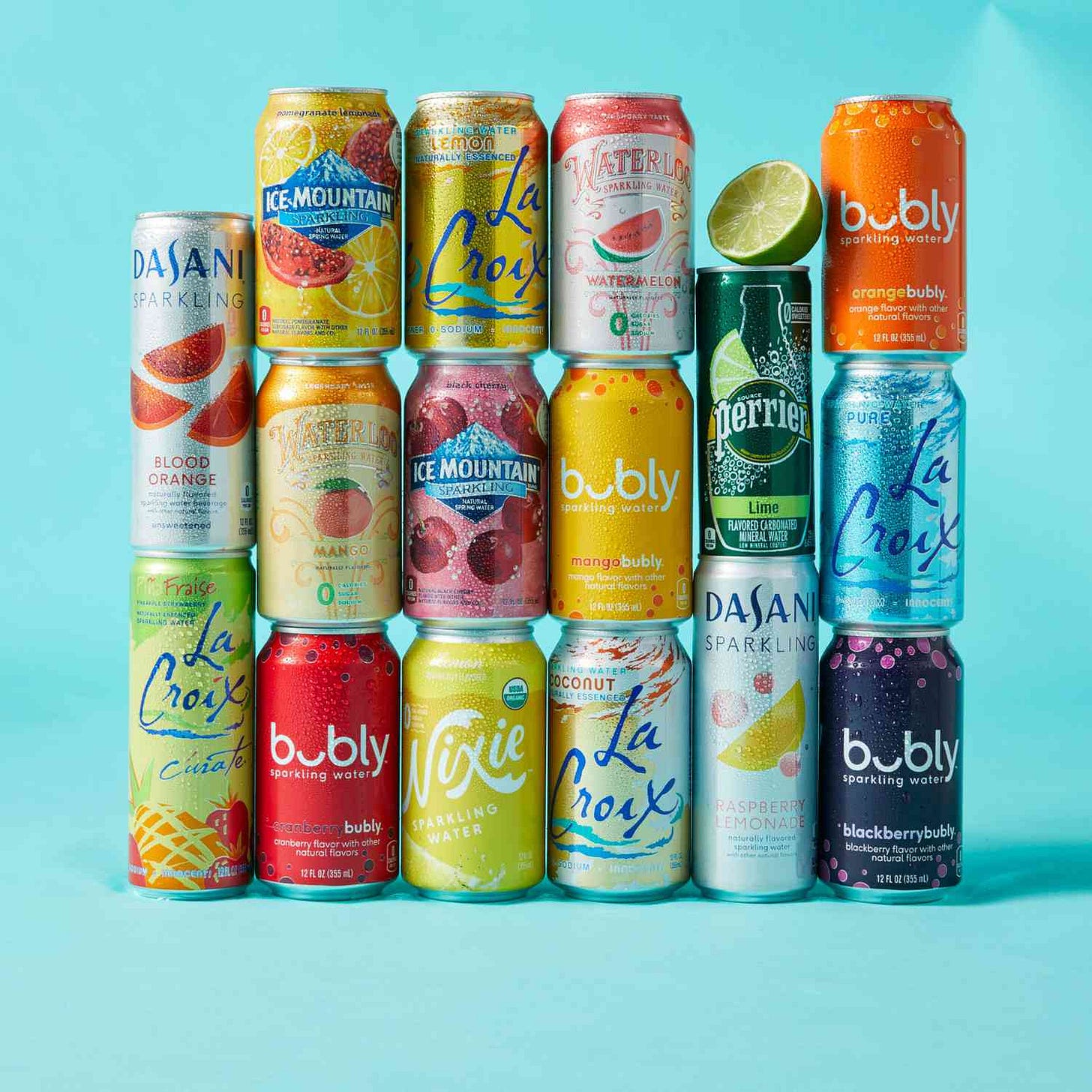Q1, 2023 in Food and Climate: 3 key reflections.
Toxic consolidation. Climate and banking. Science-centric companies.
Q1 was about Expo West, Future Food Tech, banking crises, a challenging economic moment, FDA green light to GOOD Meat’s cultivation-based meat products, and much more. Here are some key thoughts.
[1] We’ve created a startup culture that feeds consolidation. And I believe that’s fundamentally wrong.
Walking the floor of ExpoWest was almost hilarious. What was jerky and kombucha a few years ago, is now mochi and flavored water. I saw tens of companies offering exactly the same products, with slightly different branding and (sometimes) storytelling. No clear innovation, often very little renovation, and honestly, very little purpose too.
As our species is running out of time in the race for survivorship, Expo West was a good reminder that there are still hundreds of Liquid Deaths out there, whom primarily goal is to crack the branding code, talk to the audience that is hard to reach for big brands, and become the next Nestle’s acquisition.
We’re living in a food system that is extremely vulnerable, (i,e. only four companies control 90% of the global grain trade) and our entrepreneurial culture is still driven by consolidation as a success metric. How wrong is this?
The causes might be obvious. [1] If you build a VC-backed company you operate under the assumption that you’ll return money to investors. Exiting the company might be an “easier” way to do that, compared to growing a healthy business and do it through revenues. [2] The latter will also require more time and effort. Building a long-lasting, profitable business is hard. [3] Our educational system (business schools, I talk about you!) has, over the years, been leaning towards a culture where having an exit on your resume is a badge of honor. [4] You also have better chances to become an influent investor if you sold your company in the past.
The list of possible reasons doesn’t stop here, and there is a bigger conversation to be had (I’ll write more about this topic). I want to start by stating that there is a problem here, as this entrepreneurial culture doesn’t bring us, human species, anywhere.
[2] When creating companies to tackle climate crisis, we often underestimate the power of banking.
At Expo West there was an extremely interesting panel around the role of banking in tackling our current climate emergency (check out Financial Footprint, BankFWD, 350.org). That conversation happened two days before SVB collapse.
Despite all the rhetoric coming from banks committing to become net zero by 2050, trillions of dollars still keeps the coal, oil and gas industry alive, and even helps expand it.
Patagonia shared their struggles and decision making processes: acknowledging how smaller, greener banks are often not equipped to work with such big and international clients, and still it’s important to look for creative solutions. They therefore decided to differentiate:
Work with bigger banks and set aggressive targets for them to work on, as a condition for their work relationship to last;
Show willingness to engage with them about their progress: be a resource;
Keep liquidity in a series of small, fossil fuel-free banks in marginated areas, as a way to create positive impact.
To use Bill McKibben’s words:“Remember that the goal is not for you to leave your bank, it is for your bank to leave fossil fuel”.
No climate commitment of any bank is complete without a pledge to urgently commit to financing a just transition to a zero-carbon society. It is our responsibility to properly evaluate available options and make holistic and conscious banking decisions once growing companies.
[3] Most of science-centric companies fail at being food companies. And that’s why climate-friendly foods adoption is still low.
You know when you taste a product and you wonder: who will eat this?! Well, this happens very often. Unfortunately both Future Food Tech, and Expo West were packed with barely edible products.
Then, you read enthusiastic articles from journalists, and fellow founders, and you think it might be you that doesn’t appreciate that dry, soy-flavored nugget. Trust me, it’s not just you. The close circle of individuals working days and nights on this industry is biased, we know how hard it is to make it happen, how innovative, and impactful it is. We are biased as we’re totally in love with this vision.
Does this means that the final consumer will be blown away by that product? No, absolutely no! Three thoughts on this topic:
Until a company has culinary at the core, it is not a food company. There is a reason why you go eat in restaurants and not in labs.
Listen to consumers. More than investors. The value of user-centered design and constant consumer testing is endless.
Stop explaining every single bit of technology to final consumer. Have the animal industry ever talked about how abundantly their meats bleed? How you might have eaten fertilized eggs? How milk is squeezed out of udders?! There is a reason why they don’t.





